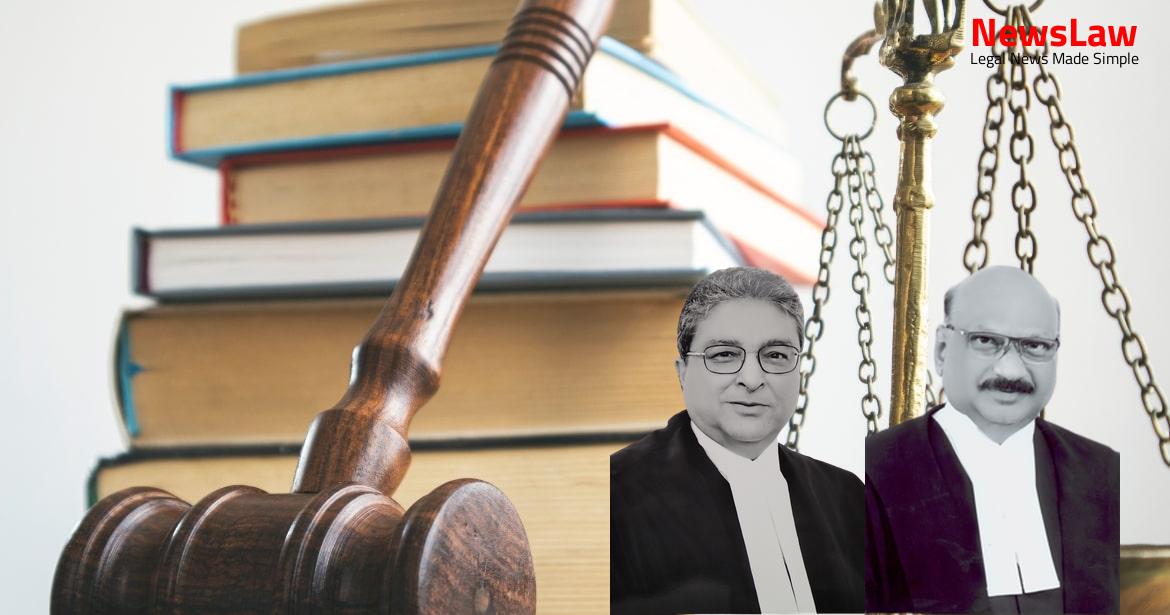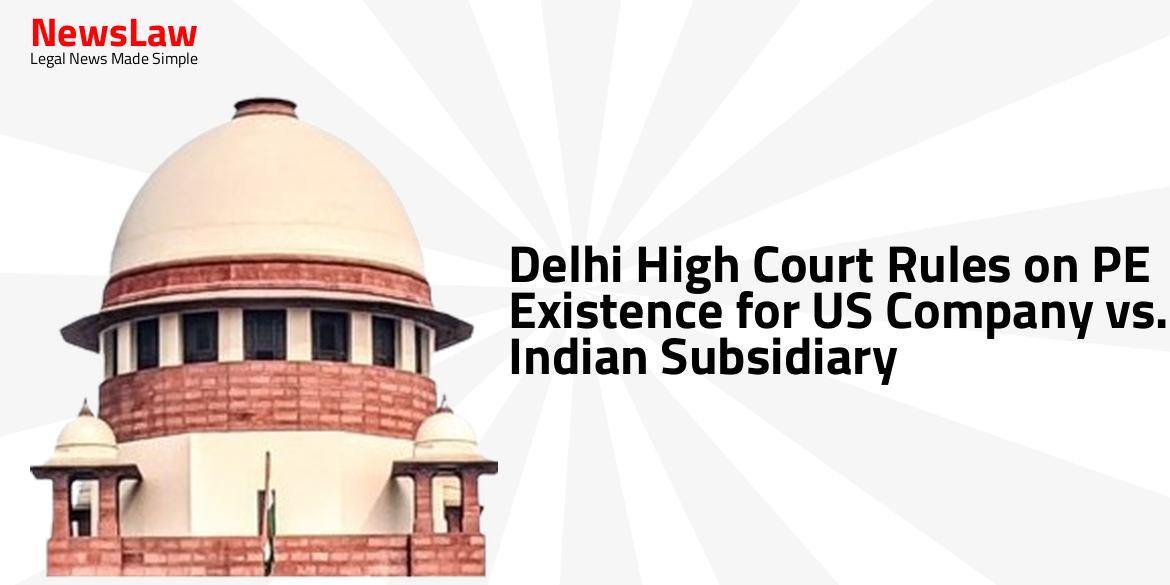Delve into the significant legal case of Md. Zakaria v. Md. Taiyab, where the Supreme Court of India considered the succession to Mutawalli-ship under waqf law. The case revolves around the interpretation of the waqf deed and the nomination of successors from the family line of the settlor. Stay informed as we explore the intricacies of hereditary succession in this complex legal matter.
Facts
- The High Court found that the waqf deed dated 9.11.1936 indicated the cessation of joint mutawalli-ship upon the death of either of the original joint mutawallis.
- The trust property included the property of the deceased Kammu Mia, suggesting the inclusion of his family in the management of the trust.
- The High Court mentioned the absence of a definition of lineal descendants in the 1995 Act and considered the definition under Section 25 of the Indian Succession Act to interpret the term ‘family line’.
- The Tribunal rejected Md. Zakaria’s claim, stating the intent of the wakif was for joint mutawalli-ship to cease upon the death of either joint mutawallis.
- The High Court dismissed both petitions affirming the Tribunal’s findings, mentioning that allowing descendants through the female line for mutawalli-ship would expand the list of claimants.
- The High Court found no provision in the waqf deed for the appointment of another joint mutawalli after the death of one of the original joint mutawallis.
- No custom or usage supported the appointment of joint mutawallis after the deaths of Md. Shafi and Kammu Mia.
- The High Court clarified the appointment of Kammu Mia’s descendants as mutawallis can only occur after the direct lineal descendants of the waqif are exhausted.
- The waqf deed dated 9.11.1936 outlined that the settlor’s son Md Shafi and son-in-law Kammu Mia would be joint Mutawallis during their lifetime.
- Upon the death of one of the joint Mutawallis, the survivor would become the sole Mutawalli and had the authority to nominate a successor from the family line of the settlor.
- After the death of Md. Shafi, Kammu Mia became the sole Mutawalli and later nominated his daughter’s son Md. Taiyab as his successor through a deed in 1973.
- The Assam Wakf Board appointed Md. Taiyab as joint Mutawalli with Kammu Mia upon Md. Shafi’s death.
- A separate Wakf Board for Meghalaya was constituted, and various legal actions were taken after the deaths of Kammu Mia and Md. Taiyab.
- The Meghalaya Wakf Board found Md. Taiyab ineligible for Mutawalli position due to not being a direct lineal descendant of the settlor’s family line.
- The Wakf Tribunal interpreted ‘family line of the settlor’ in the waqf deed using the Indian Succession Act, determining the lineal consanguinity for appointing the Mutawalli.
- Md. Sulaiman succeeded Kammu Mia as Mutawalli and later failed to nominate his successor.
- Md. Sulaiman was recognized as the sole Mutawalli by the Meghalaya Wakf Board after Kammu Mia’s death.
- Legal actions including revision petitions and writ petitions were filed by Md. Zakaria and Md. Taiyab against the tribunal’s decisions.
Also Read: Tower Infotech Ltd. Bail Order Appeal
Issue
- The first issue in the present appeal is whether a person from the waqif’s family line could succeed to the vacant post of joint mutawalli after the death of one of the original joint mutawallis.
- Reference is made to Mulla in Principles of Mahomedan Law, where it is stated that in cases of joint mutawallis without specific direction by the waqif or evidence of contrary custom, the office passes to the survivor(s) on the death of one holder.
Also Read: Priority of Employees’ Dues in Asset Sale: SARFAESI Act vs. Land Revenue Code
Analysis
- The interpretation of the waqf deed is crucial in determining the succession to mutawalli-ship.
- The waqif intended that the survivor of the joint mutawallis would be the sole mutawalli ‘for the time being’ after the death of the other.
- The waqf deed allows the survivor to nominate a successor from the waqif’s family line.
- The intention of the waqif is paramount in establishing hereditary succession to mutawalli-ship.
- Cognatic heirs of the waqif may have the right to succeed to mutawalli-ship based on the waqf deed.
- The High Court’s finding that mutawalli-ship should devolve upon Kammu Mia’s descendants only after direct lineal descendants are exhausted is incorrect, as the waqf deed does not stipulate this.
- Section 63 of the 1995 Act allows the Board to appoint a mutawalli in case of disputes or vacancies in the office.
- In Md. Eshaque, the waqf deed specified giving preference to male issue over female issue for mutawalli-ship.
- The case of Haji Abdul Razaq v. Sheikh Ali Baksh was referred to for this preference.
- The Madras High Court referred to Sheikh Karimodin for the meaning of ‘batnam bad batnam’ as generation after generation.
- Syed Mahomed Ghouse v. Sayabarin Sahib also used similar terms for succession to mutawalli-ship.
- Md. Eshaque determined the appointment of mutawalli to be in line with the waqf deed.
- Asraful Alam Shani case dealt with joint mutawallis succession.
- Wares Ali v. Sheikh Shamsuddin found ‘legal heirs’ in the waqfnama to include lineal descendants in both male and female line.
- The High Court in Md. Eshaque did not rule out the devolution of mutawalli-ship to descendants through the female line.
- Syed Mahomed Ghouse confirmed that a son of a female descendant could manage the waqf property.
- Question arose whether the son of the mutawalli’s widowed daughter could succeed as mutawalli.
- Sheikh Karimodin v. Nawab Mir Sayad Alam Khan held that ‘ahfad’ in the waqf deed covers descendants of the daughter.
- The senior-most among the children of the Mutwalli is entitled to ‘tawliat’.
- If multiple children are equally senior, the decision will be made by religious experts and learned individuals.
- The office of Mutwalli cannot be transferred to female issue as long as there exist male issue.
Also Read: Landmark Judgement on Consumer Rights in Healthcare Sector
Decision
- Respondent No 2 has shown disinclination to nominate a successor to the deceased Kammu Mia as per the waqf deed terms.
- Petitioner No 1 directed to appoint a competent person from Kammu Mia’s descendants as joint mutawalli.
- The appointed successor has the authority to nominate a successor from Respondent No 2’s family line.
- Successor has the right to nominate their own successor as per Clause 3 of the waqf deed.
Case Title: MD.ABRAR Vs. MEGHALAYA BOARD OF WAKF .
Case Number: C.A. No.-004025-004025 / 2010



